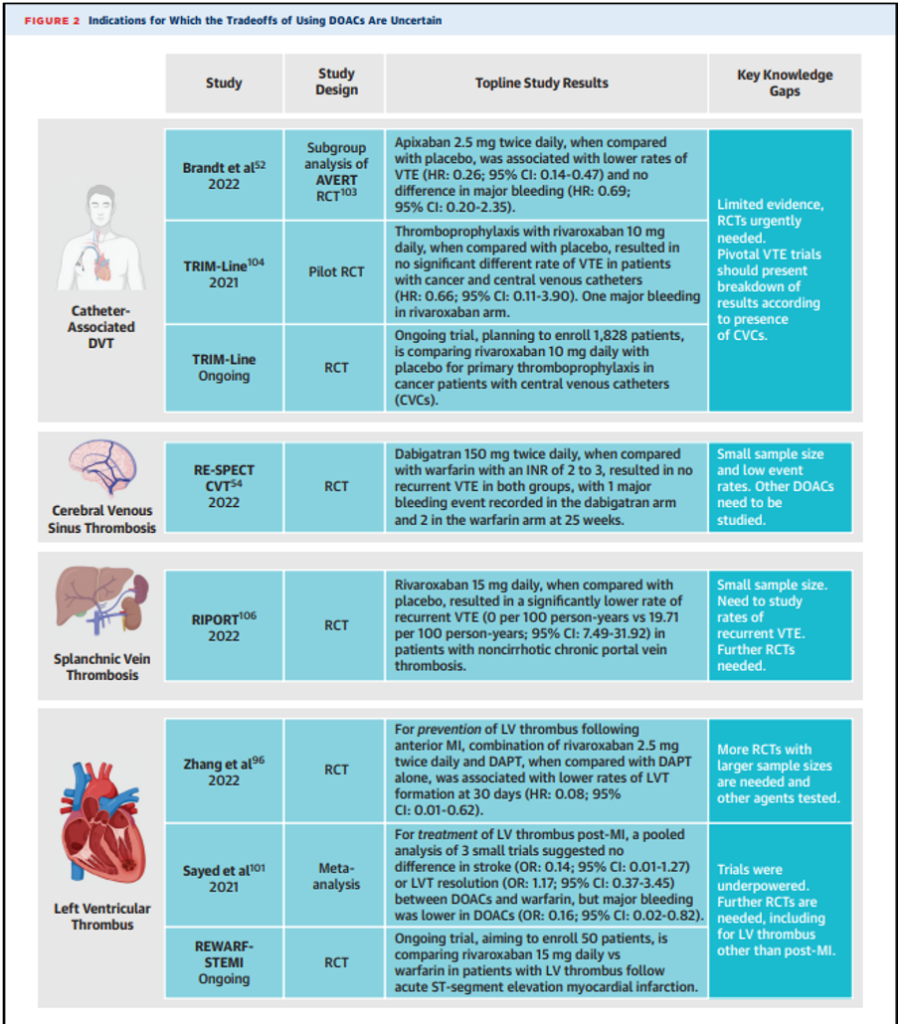

SCENARIOS IN WHICH DOACs HAVE DEMONSTRABLE EFFICACY AND SAFETY
SCENARIOS WHERE DOACs ARE LESS EFFICACIOUS OR SAFE, OR PROVIDE NO BENEFIT COMPARED WITH STANDARD OF CARE

SCENARIOS WHERE THE SAFETY/EFFICACY OF DOACs IS UNCERTAIN




© 2022 Cardio Blogger. All Right Reserved | Designed & Developed By Diviants